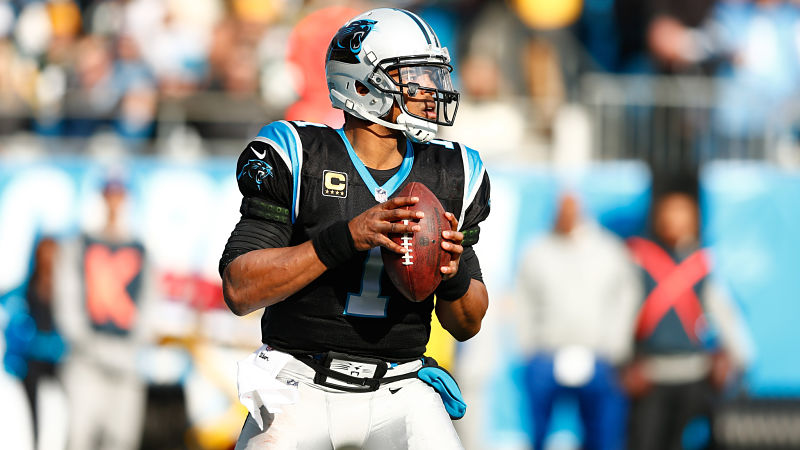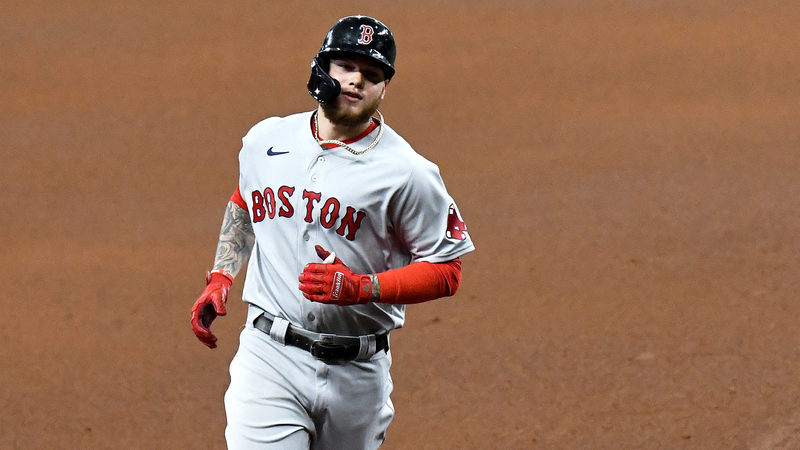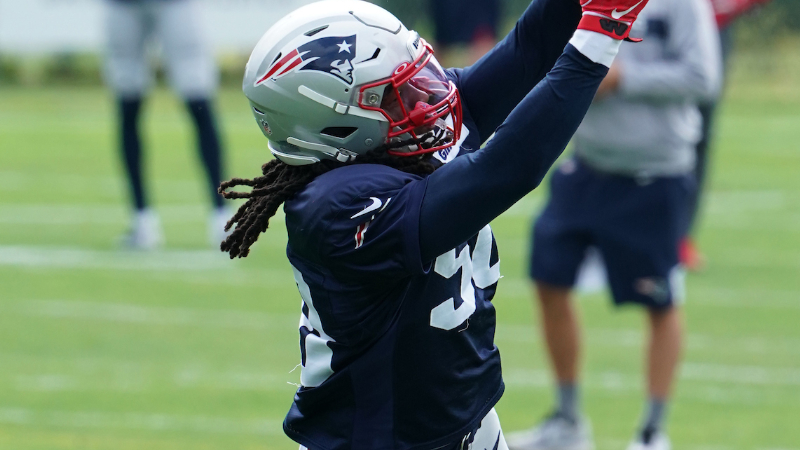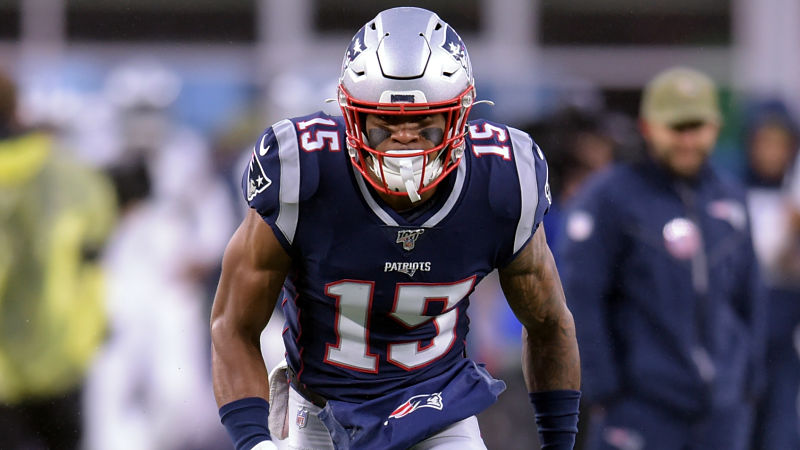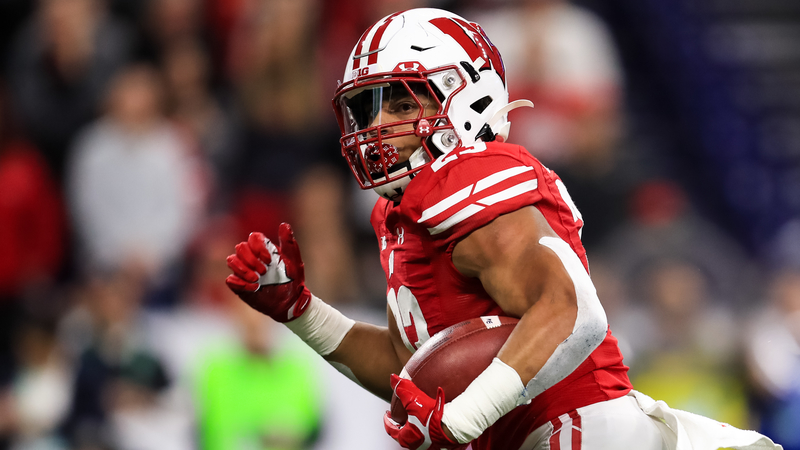Nowadays, the most pertinent questions surrounding Major League Baseball — and each of its 30 clubs — involve logistics, namely those related to the 2020 season, which will be unlike any other thanks to the coronavirus pandemic and a contentious relationship between the owners and players.
Still, at some point, our focus needs to shift to the actual on-field product, and we must ask ourselves: What the heck is about to happen between the lines?
The Boston Red Sox, one could argue, face more questions than most after a disappointing 2019 campaign followed by an offseason in which they hired a new chief baseball officer (Chaim Bloom), parted ways with their manager (Alex Cora), traded their best all-around player (Mookie Betts) and lost their ace (Chris Sale) to Tommy John surgery.
It already was difficult to place expectations on Boston, a team just two years removed from winning 108 regular-season games en route to a World Series title. Now, it’s nearly impossible.
Here are eight questions the Red Sox face as they return to work, first as part of MLB Summer Camp and then as underdogs in the American League East.
1. How will a shortened season impact the Red Sox?
We explored this topic in depth Monday, but here’s the short answer: ¯\_(ツ)_/¯
Anyone who says they know how the upcoming 60-game season will play out is lying straight to your face. The world — let alone sports and let alone MLB — is so unpredictable right now that an extraterrestrial invasion or a zombie apocalypse no longer can be dismissed as crazy talk.
A typical, 162-game regular season is designed in a manner that usually ensures the best teams make the playoffs. It’s truly a marathon, rather than a sprint, and those clubs able to withstand the ebbs and flows almost always play deep into October. Simple as that.
Now, not only are we talking about a season so short that a hot streak or a rough patch can completely turn the standings board on its head. We’re also forced to consider potential injuries, illnesses and transactions through a much different lens.
All told, the last team standing might not necessarily be the best team, but rather the luckiest.
2. Is Ron Roenicke the long-term solution as manager?
It wasn’t surprising to see the Red Sox turn to Roenicke, their bench coach the past two seasons, after Cora’s departure. MLB’s managerial carousel already had spun around for the offseason, so the Red Sox were better off saving their ride tickets for next winter. Roenicke is a perfect place-holder given his familiarity with the current clubhouse.
That said, one can’t help but wonder whether this will mark Roenicke’s only season as Boston’s manager. Sure, the Red Sox removed his “interim” label in April, after he was exonerated in MLB’s investigation into allegations the team illegally stole signs in 2018. But Roenicke’s contract only runs through the 2020 season, after which Bloom might want to bring in his own skipper. Perhaps it’ll depend on what happens over the next few months.
3. How much will the Red Sox miss Betts?
Few players across baseball are better than Betts, who ranks second only to Mike Trout in fWAR since the beginning of 2016. He’s a four-time Gold Glove winner, a three-time Silver Slugger recipient and was named AL MVP in 2018. He impacts the game in so many ways. Losing a player of his caliber almost certainly will sting.
It’ll be interesting, however, to see where his departure affects Boston the most and whether the Red Sox can overcome the blow. After all, the Red Sox’s lineup still is well stocked, with starting pitching being Boston’s most glaring weakness, and Alex Verdugo offers upside as Betts’ replacement.
4. Which newcomer(s) will thrive?
Bloom’s first offseason in charge of Boston’s baseball operations department will be remembered for the Betts trade, which brought back Verdugo, Jeter Downs and Connor Wong while also sending away David Price. But a few under-the-radar additions could make a difference this season.
Maybe Martin Perez, Collin McHugh or one of the Red Sox’s new, lesser-known relievers will help solve Boston’s pitching problems. Maybe Kevin Plawecki and/or Jonathan Lucroy will prove valuable in backing up catcher Christian Vazquez. Maybe speedy free-agent acquisition Jose Peraza and/or versatile Rule 5 draftee Jonathan Arauz will log meaningful innings at various positions. Or maybe Kevin Pillar will fit perfectly into the outfield mix.
Take your pick, really. The Red Sox’s core will be expected to do the heavy lifting, but the outer layers of the roster might determine Boston’s fate in 2020.
More Red Sox: Check Out These Awesome Photos Of Team Arriving At Fenway Park For Summer Camp
5. Can the Red Sox piece together a viable rotation?
The Red Sox’s rotation already stood on shaky ground. Then, Sale went under the knife, ending his 2020 season before it began. Boston now is left with Eduardo Rodriguez, Nathan Eovaldi and the aforementioned Perez as its only three legitimate starters. And even those hurlers come with questions.
Ryan Weber could fill the fourth spot. After that, the Red Sox will need to get creative, likely deploying a matchup-based opener strategy that might involve the likes of McHugh, Brian Johnson, Kyle Hart and Jeffrey Springs, among many others. Not ideal.
6. Is Brandon Workman a legitimate closer?
Workman was sneaky dominant as Boston’s closer in 2019, eventually securing the role after an initial stretch of uncertainty in wake of Craig Kimbrel’s departure last offseason. He totaled 16 saves, struck out 13.1 batters per nine innings and posted a 1.88 ERA along with a 1.03 WHIP and .123 batting average against.
Was this breakout for real? Hard to say, seeing as Workman turns 32 in August. But with good health and improved strike throwing, he should remain a valuable member of Boston’s bullpen ahead of hitting free agency next offseason.
7. Will J.D. Martinez stick around beyond 2020?
Speaking of free agency, Martinez has reached the point where he can decide year to year whether he wants to stay in Boston. The 32-year-old slugger chose to stay put this offseason, but his contract includes additional opt-outs after the 2020 and 2021 seasons. He’s slated to become a free agent after the 2022 season.
So far, the arrangement has worked out well for both sides, with Martinez beginning his Red Sox tenure with two very productive seasons. Maybe he’ll opt out in search of another big payday. It’d be risky given the pandemic and the leaguewide financial ramifications of this shortened season, but his market will expand if the National League adopts the designated hitter on a permanent basis beyond 2020.
Martinez is set to earn $19.35 million in both 2021 and 2022 under his current deal.
8. Is Dustin Pedroia’s career over?
Pedroia has been limited to just nine games over the past two seasons due to a lingering knee injury. He suffered a “significant setback” in January and turns 37 in August. Retirement seems possible, if not likely, but we’ll continue to wonder until Pedroia announces his plans. Either way, it’s been a heck of a career for the hard-nosed second baseman.


